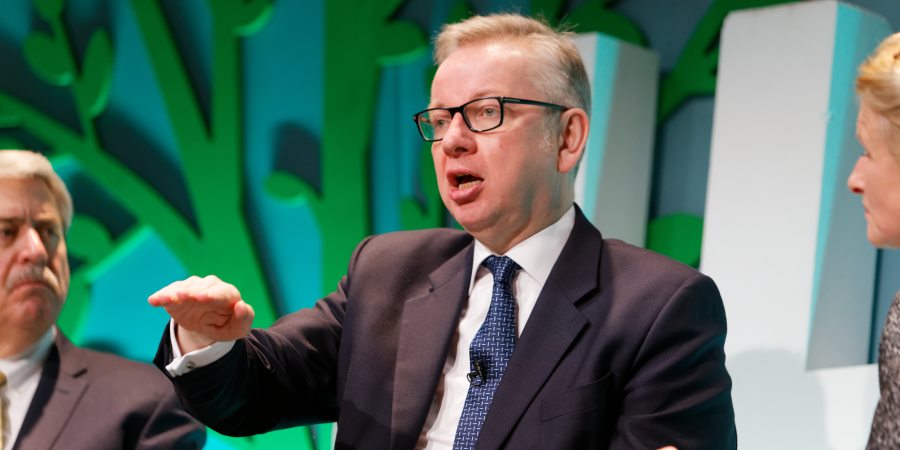Businesses and manufacturers will pay the full cost of recycling or disposing of food waste, under a major new government strategy unveiled by the Environment secretary, Michael Gove.
The announcement forms part of the Government’s new Resources and Waste Strategy, the first comprehensive update in more than a decade.
Within the strategy, there is extensive discussion on how food waste can be tackled.
In the UK alone, an estimated 10 million tonnes of food and drink are wasted annually after the farm gate, worth around £20 billion. Food waste from the hospitality sector amounts to one million tonnes per year, worth some £2.8 billion.
The Government intends to produce guidance for the sector to support its actions in the prevention of food waste, including best practice examples such as offering a range of portion sizes and a take-home service for leftovers.
Around 30% of hospitality and food service food waste stems from catering in schools, hospitals and other public sector institutions. The new strategy sets out its ambitions for improving this position, and in so doing also recognising the demand for sustainable, locally sourced, nutritious and palatable food.
Government will continue to provide guidance on best practice, and will check food businesses’ progress through regular surveys, the first of which will take place in 2019.
Defra, the FSA and WRAP have previously published food labelling guidance, which is expected to be fully implemented by all food businesses. In 2019, Government will also review the current recommendation for most pre-packed uncut fresh produce to carry a ‘Best Before’ date.
The Government’s expectation is that, before the review, the industry will provide evidence about changes to fresh produce date labelling (including the removal of ‘Best Before ‘advice), both in store and at home, in a move towards a consistent approach across the sector.
The 25 Year Environment Plan sets out its commitment to work with both retailers and WRAP to explore introducing plastic-free supermarket aisles in which all food is sold loose. Aisles such as these can be popular with some shoppers, according to Defra, but it is also the case that packaging protects and extends the shelf life of many items too.
In autumn 2019, the Government, through WRAP, will conduct a survey to assess how far retailers and food businesses have come in implementing key industry guidance and best practice on food waste.
The survey will look at the progress on date labelling, storage advice, pack sizes, consumer advice and provision of loose produce. The results of the survey will then be published.
Launching the strategy at Veolia’s recycling centre in London, Environment secretary Michael Gove said: “Our strategy sets out how we will go further and faster, to reduce, reuse, and recycle. Together we can move away from being a ‘throw-away’ society, to one that looks at waste as a valuable resource.
“We will cut our reliance on single-use plastics, end confusion over household recycling, tackle the problem of packaging by making polluters pay, and end the economic, environmental and moral scandal that is food waste.
“Through this plan we will cement our place as a world leader in resource efficiency, leaving our environment in a better state than we inherited it.” To read the full strategy, click here.









